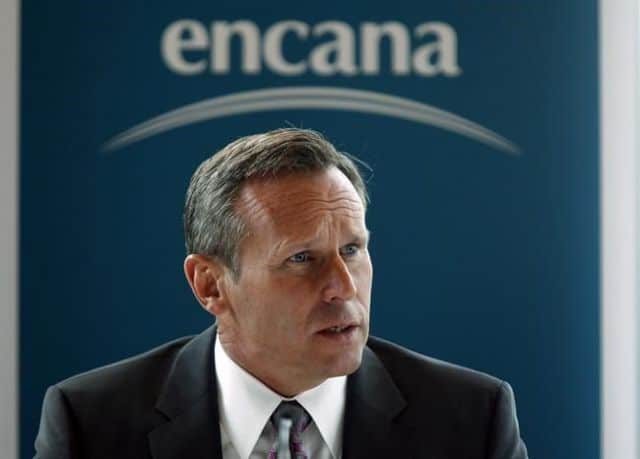
The CEO of Encana Corp. says Western Canada’s Montney oil and gas region would be two to four times more productive if it was in the United States with its more efficient regulatory systems.
Doug Suttles says the enormous hydrocarbon-bearing formation that underlies the Alberta-B.C. border can compete with premier Texas shale oilfields but it’s being held back by a “cumbersome” regulatory system, along with the inability of smaller Canadian producers to access development capital.
He says Encana has built some of the most energy-efficient facilities in the region with its partner to process the gas it produces, but it’s “ridiculous” that the years it takes to get permits is longer than the time required to actually build the plants.
Suttles made the comments during a panel discussion at a PwC-sponsored energy forum in downtown Calgary that examined what Canada’s energy sector can do to compete more effectively.
PwC national energy leader Reynold Tetzlaff says it’s vital that the country get pipelines built to take products to market, starting with the Trans Mountain pipeline expansion that could be approved by the federal government next month.
He says Canadian politicians also need to co-operate to establish a credible national energy policy.
Suttles said the “complexity and uncertainty in the regulatory process is orders of magnitude higher” in Canada, where Encana produces about one-third of its oil and gas, compared with the U.S.
“The Montney now is the biggest area of growth in Canada, it’s where we’re focusing our attention, and if it sat in the United States it would probably be producing two, three, four times what it is producing today,” he said.


